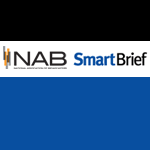 |
FCC Releases XM/Sirius Merger Order Detailing Conditions
The Federal Communications Commission (FCC) last week released the text of its Order approving the merger of Sirius Satellite Radio Inc. and XM Satellite Radio Holdings Inc. While the FCC concluded that the merger would violate its rule against one satellite radio licensee controlling both licenses and it found that, absent the voluntary commitments offered by Sirius and XM and other merger conditions designed to mitigate the harms, the merger would likely harm consumers and diversity, it refused to stop the merger from going forward.
The FCC concluded that, on balance, the potential benefits of the voluntary commitments and other conditions outweigh the merger's potential harms, and therefore decided that the merger is in the public interest. The most significant commitments and conditions, in order of relevance to broadcasters, are described below.
HD Technology
- Although the FCC found it unnecessary at this time to mandate the inclusion of HD chips in satellite radio receivers, it committed to launching a rulemaking proceeding within 30 days to explore such a requirement.
- The merged company is barred from preventing any manufacturers from including in satellite radio receivers any technology, including HD radio technology, which would not cause harmful interference to their network.
Local Programming
- The FCC prohibited the merged entity from entering into any agreements with content providers that would bar any terrestrial radio station from broadcasting live local sporting events.
- The FCC reiterated that satellite radio providers are not permitted to use terrestrial repeaters to distribute localized programming or advertising that is different from the programming or ads that are provided to satellite subscribers nationwide via satellite.
Consumer Issues
- The FCC also accepted Sirius and XM's voluntary commitments to cap prices for 36 months, but will seek public comment in 30 months on whether the caps should be modified or extended.
- The merged company will offer new programming packages, including so-called a la carte packages, within three months, and make available four percent of its capacity for use by certain Qualified Entities and an additional four percent for the delivery of noncommercial programming.
- Within nine months, the merged company will offer interoperable receivers in the retail after-market.
- The merged company will extend service to Puerto Rico through the use of terrestrial repeaters.
Terrestrial Repeater Authorizations
- The FCC also approved two Consent Decrees that settle the FCC's investigations into Sirius and XM's failure to comply with the terms and conditions of their terrestrial repeater authorizations. The combined company must contribute approximately $20 million to the U.S. Treasury, and take certain additional remedial steps, including the implementation of a Compliance Plan to ensure future compliance with the Communications Act, the FCC's rules, and the Consent Decrees.
New Compliance Requirements
The Compliance Plan requires that Sirius/XM:
- Appoint an FCC Compliance Officer to serve as the point person for overseeing the FCC-related aspects of the company's operations;
- Adopt procedures for testing, certifying and modifying satellite radio receivers and repeaters;
- Conduct audits of randomly selected satellite radio receivers to ensure compliance with FCC requirements;
- Establish an FCC Compliance Training Program;
- Help subscribers fix non-compliant receivers at no cost to subscribers;
- Turn off or bring into compliance 100 terrestrial repeaters, and send the others to FCC's International Bureau for processing;
- Starting on September 1, 2008, and continuing at three month intervals until the Consent Decrees expire in five years, provide a report detailing: (1) the total number of Radio Receivers that remain activated as of the most recent date on which that information is available to XM; (2) the status of its compliance efforts; and (3) any changes in the technical parameters at which its terrestrial repeaters are operating.
You can read the text of the Order here.
Return to The NAB Pulse Main Page
 |
|  |


 |





